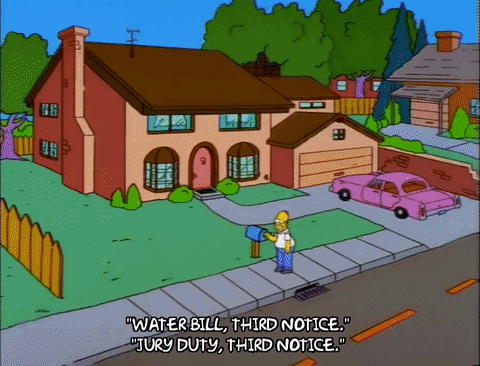Serving jury duty is a civic responsibility and part of what keeps the American judicial system honest. It’s also an inconvenient pain will cost you time and money, unless you’re lucky enough to be in a salaried position that’s OK with you missing an indeterminate amount of time.
Your odds of being chosen for jury duty are actually quite low, according to FiveThirtyEight, which reported that last year only 64,000 people were selected for federal jury service in the United States. That’s significantly less 1 percent of the adult population.
But what happens if you are summoned and decide to ignore it? What happens if you miss jury duty?
The short answer is probably nothing.
The longer answer is also probably nothing, but it depends. The reality is that it’s generally not in the court’s best interests to spend time and resources tracking down people who don’t show up for jury duty. It’s time-consuming; more case dockets to their workload; and is generally a futile and fruitless exercise when the court’s attention could be better spent elsewhere. Not to mention, judges in many areas are electable and accountable to the public, so sending out fines and then sussing out who actually did or did not receive the summons is a headache that most courts would prefer to avoid.
That doesn’t mean, however, you should ignore your summons and not show up for jury duty. Just because it’s unlikely you will be penalized, it can happen.
Each state and county have different laws governing the subject, which range from fines to jail time. In a more aggressive state, like Arizona, ignoring a jury summons could potentially lead to a sheriff’s deputy knocking on your door. The penalty for not showing up for federal jury duty is $100 per day and/or a three-night stay in jail. In Texas, you could be fined up to $1,000 and jailed up to 6 months for contempt if you blow off a county or district court.
Or the judge could issue a bench warrant, which you might not even be aware of until an officer checks your record during a traffic stop. That could lead to a warning to have the matter straightened out with the issuing court, or it could lead to fines and jail time.
Oklahoma, Louisiana, and Mississippi have already passed laws calling for more compensation for jury duty (most states pay $15 per day), with nearly half of the states considering similar legislation. Federal jurors are paid $40 per day, up to $50 after 45 days, on a grand jury. But that’s still not fair compensation for a person’s time; an eight-hour day on minimum wage is $58.
All that said, your best course of action if summoned to jury duty is to show up. For one thing, it’s what allows us to have fair trials. Besides, if you need to get out of it, it’s not that hard to dodge using more honest means than just ghosting your civic responsibility.
Editor’s note: This article is regularly updated for relevance.




